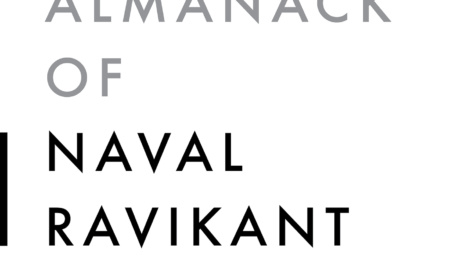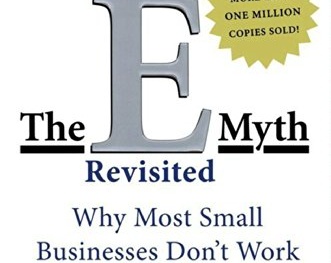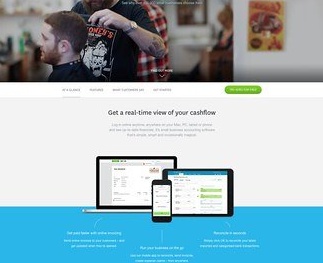Wondering how to start a microbrewery in Australia? Australian support and awareness for craft brews is at historically high rates. This is lucky news for aspiring microbrewery owners. The market has clear demand for new and exciting tastes from indie brew businesses. When starting a microbrewery in Australia, you’ve got a good chance of success, especially if you approach starting your craft brew business with solid knowledge and planning.
Read on for a complete overview of the tax and accounting requirements for setting up a craft brew business in Australia. You’ll learn the unique licensing, permit, and tax requirements for craft brew businesses, and how to create a successful business plan.
Need help on getting the accounting and tax set up for your business? Give James a call directly on 0404 530 563 or email me at james@jdscott.co for a FREE 30 minute consultation on the next steps. You will walk away with three actionable steps to make you profitable, improve your cashflow or fix you tax.
What’s Required to Start a Microbrewery in Australia?
There are many similarities between any startup and a microbrewery in Australia. Any new business should start with a comprehensive business plan. Under any conditions, you meet multi-industry requirements for legally registering your business name and obtaining a tax file number. However, there are some unique requirements for licensing, excise tax, and product labelling that are unique to craft brew businesses.
The specific requirements for craft beer industry in Australia include:
- Obtaining a Producer/Wholesaler’s License from the Office of Liquor, Gambling, and Racing
- Determining and paying applicable excise tax rates
- Following regulatory requirements for beer labelling via The Australian and New Zealand Food Standards Code
In addition to these mandatory requirements for craft brew businesses, there are several other requirements which apply if you intend to serve beer on-premises to members of the public in a pub setting. You may choose to:
- Obtaining a Microbreweries drink on premises license
- Authorisation for trade shows or events
- Obtaining a Responsible Service of Alcohol (RSA)
- Completing Licensee & Advanced Licensing Training
Each of these licensing requirements are discussed in-depth below, along with insight about typical costs and requirements.
Create a Microbrewery Business Plan
An effective microbrewery business plan will encompass both general planning and market analysis, and elements of business plans that are specific to the craft brew industry. The business plan is an opportunity to document your intentions for technical brewing, sourcing beer ingredients, branding, marketing, and complying with all applicable laws.
There are over 600 independent, registered craft brew businesses in Australia, according to the Independent Brewers Association (IBA). A new craft brew business opens every six days. There’s growing demand for craft brew products among Australian locals. However, there’s also fierce competition. A successful, comprehensive business plan is the first step toward a successful microbrewery business.

Starting a microbrewery: the importance of a business plan
What Goes into a Business Plan?
You can begin drafting your business plan using a free, online template or create your own document from scratch. In general, every business plan for a craft brew business or microbrewery should include the following information:
- Summary
- Goals & Objectives
- Microbrewery summary
- Ownership
- Market research
- Strategy
- Regulatory requirements
- Financial analysis
Perform Market Research
There’s more to a successful craft brew business than great-tasting products. Market research is a valuable activity for all new craft brew businesses to understand the industry, competition, and customers. Recommended areas of market research for any new business in Australia include:
- Customers
- Competition
- Products
- Suppliers
- Business Location
- Local Community
In addition, it’s wise to work to develop a deeper understanding of the craft brew business climate:
- Research the microbrew industry
- Connect with successful craft brew entrepreneurs
- Improve your technical brewing knowledge
Research Regulatory Requirements
The business plan should involve thorough research and documentation of all applicable regulations to produce, sell, distribute and label craft beer products. In addition, your regulatory requirement research should include comprehensive look at tax requirements. The regulatory requirements for craft brewers are discussed later in this article. However, these are an overview, not a definitive guide to regulatory compliance.
It’s up to you to stay informed on all applicable laws and adjust your business plan when legal requirements change. A business plan should be a living document, and craft brew entrepreneurs should be aware that laws can change quickly.
Perform Cost Projections
Budgeting and financial forecasting is a crucial part of business plan creation for microbreweries and any other small business. After all, your business needs a solid financial plan to succeed in a competitive craft brew marketplace. The Small Business Development Corporation offers numerous free tools online to guide aspiring business owners through financial planning activities. Your cost and financial analysis should include:
- Startup Costs
- Legal fees
- Accounting fees
- Permits
- Licenses
- Wages
- Real estate
- Equipment
- Sales forecasts
- Expense projections
- Cost of goods
- Cash flow projections
Register Your Business
For a comprehensive discussion on taxes in Australia, read this article.
ABN Registration
An Australian Business Number (ABN) is a free, 11-digit number from the Australian Government’s Business Registration Service. This number is not used for taxes, but it used to create a unique identifier for your business in the community. An ABN is used to:
- Prove business identity in ordering and payments
- Avoid pay as you go tax (PAYGT)
- Claim goods and service tax credits
- Claim energy grant credits
- Receive an Australian domain name
If you are starting an enterprise, such as a microbrewery, you are entitled to an ABN. To help work out which business structure will work best for you click here.
There are a few simple requirements to register for an ABN. Generally, the Australian Taxation Office (ATO) will review an ABN application within 20 days.
Business Name
An Australian Business Name, or ACN, is the official name of your microbrewery. First, check name availability o the free ASIC search function. If the chosen name is available, you can nationally register your business name.
The cost of registering your business name with ASICs is $36 for one year, or $85 for 3 years. The ACN application is approved within 2-5 days, depending on the payment method used during registration.
ACN registration is not the same as a trademark. It also does not entitle you a domain name. Before you submit an ACN application, it’s wise to verify availability. Use IP Australia search to make sure you’re not going to infringe on any registered trademarks. Applying for a Trademark with IP Australia costs $520 and involves a multi-step application process with a final answer within 13 weeks. A web registry service search can reveal potential domain name availability and costs.
Tax File Number (TFN)
A Tax File Number is a unique identifier issued to businesses and individuals by the ATO. Generally, the free application for a business TFN can be completed during the same application process as an ACN and ABN.
Licensing and Permits
Produce/Wholesalers License
This license be obtained from the Office of Liquor, Gaming, and Racing. The license permits craft brew businesses to sell product to other licensees, sell product to the public, and conduct product tastings. It is not the same as a permit to serve beer or food in an on-site pub, but it can permit you to serve samples to customers during a brewery tour.
Retail takeaway sales to the public are subject to specific hours under this license, unless you apply for extended trading hours. This license permits trading between:
-
-
-
- 5am-10pm Monday through Saturday
- 10am-10pm Sunday
-
-
There are specific information requirements to submit an online application for this license. You will need to submit a floor plan, any applicable local counsel approval, requested trading hours, and contact information. Costs vary according to the Liquor Fee Schedule, however the application and processing fee for small microbreweries is generally $385.
An extended trading hours application can be made to extend Sunday hours from 5am to 10pm. Licensees are subject to a 6-hour daily closure requirement, even with an extended hours permit. However, special applications can be made to temporarily or permanently exempt your brewery from the 6-hour closure requirements if you can demonstrate benefit to patrons and a plan to sell alcohol safely to the Liquor & Gaming NSW.
Responsible Service of Alcohol Training
Responsible Service of Alcohol (RSA) training and certification is required for all owners and staff prior to applying for the Product/Wholesalers License. RSA training from an approved provider and valid NSW cards are an ongoing requirement for all staff of the microbrewery. A RSA refresher course must be completed every five years. The costs of training vary by provider, but $140-160 is average.
Licensees and managers of microbreweries are required to undergo two additional training courses to obtain and maintain a Product/Wholesalers license under the 2018 Liquor Regulation.
Licensee Training & Advanced Licensee Training
You can verify your training requirements on the Liquor & Gaming NSW website. However, both types of training are generally required for licensee applicants after September 1, 2018. Complete training through an approved provider to obtain this competency. Some fully online options are available. Costs and time commitment can vary depending on the provider you select, but you can expect to pay approximately $350 for each competency and spend 6-7 hours per class.
Microbreweries and Small Distilleries Authorisation
The Liquor & Gaming NSW is currently piloting a trial programme for a special type of drink-on-premises authorisation for microbreweries and small distilleries. This permit allows craft brew businesses to sell products to the public for consumption on-premises in the context of a restaurant or pub, not just tastings. There are some qualifying criteria, including a patron limit of 120 guests and providing food service in addition to beer.
This application can be completed simultaneously with a new application for a Producer/Wholesaler License. Licensees are subject to limited trading hours, including:
-
-
-
- 5:00am-midnight, Monday through Saturday
- 10:00am-10:00pm, Sunday
-
-
There is no cost to apply for this license through August 31, 2020. According to the Liquor & Gaming website, there are plans to reevaluate this licensing pathway during 2020 to potentially refine the program and expand requirements.
Industry Liquors Show and Producers Market Authorisation
Selling liquor at a tradeshow, food show, or another event generally requires a special authorisation from the Liquor and Gaming NSW. Selling craft brew at an event with 2,000 or fewer people requires a Limited License for Trade Fairs, which can be obtained by an individual with valid RSA credentials. If attendance is expected to exceed 2,000, you will need an individual application for a Large Scale Commercial Event. Costs range from $165-$650, depending on attendance.
Local Notices
The application for a Producers/Wholesalers license requires local notices. These notices must be lodged either prior to application, or within two days of filing a Producer/Wholesalers license application.
-
-
-
- public consultation ? site notice;
- police notice; and
- local consent authority notice.
-
-
Prepare to Pay Taxes
Want an easy way to ensure you never run out of cash to make a tax payment? Have a read of our simple solution to this all too common problem.
Australian business tax requirements are administered under the ATO, and in some cases, state revenue offices. It’s important to understand your requirements to avoid penalties and any tax concession rates. Your tax liabilities are likely to include:
-
-
-
-
- ATO company tax rate ? currently a
- for 2021-2022
-
-
-
-
-
-
- Capital gains tax, paid as part of income tax on any asset disposals
- Goods & services tax, and any applicable GST tax concessions
- Payroll tax
- State & territory tax responsibilities, if applicable
-
-
In addition, craft brew businesses are subject to ATO excise tax rates for alcohol, which are subject to update on February 3, 2020. These tax rates are calculated based on litre of alcohol (LAL).
Create Systems for Records-Keeping
Systems of record (SOR) for business and tax records are a responsibility to pay proper tax rates and tax advantage of all possible concessions. Your systems should include a centralised method to securely store, track, and retrieve records for:
-
-
-
- Receipts
- Expenses
- Sales
- Taxes
- Tax invoices
- Wages and salaries
- Purchase records
-
-
Not only do you need to capture these records, you need to meet legal requirements to retain information. In general, records must be retained for 5 years.
Alcohol Labelling
Pre-packaged beer and alcohol must comply with all legal requirements for labelling. Beer sold in Australia l is subject to labelling laws from the following authorities:
-
-
-
- Food Standards Australia and New Zealand
- Department of Agriculture and Water Resources
- State and Territory Food Regulations
- Australian Competition and Consumer Commission
- National Measurement Institute
- Alcohol Beverages Advertising Code Scheme
-
-
Failure to comply with all applicable requirements for labelling can result in serious consequences, including product recall or prosecution. There are historical examples of prosecution and fines imposed against craft brew businesses for non-compliance with labelling, including labels which were deemed misleading or false under the ACCC.
Mandatory Label Information Includes:
-
-
-
- Product Description (Standard 1.2.2)
- Volume Statement (National Trade Measurement Regulations)
- Alcohol Content (2.7.1)
- Standard Drinks Statement (2.7.1)
- Country of Origin (ACCC)
- Supplier & Packer Name and Address (1.2.2)
- 10C Refund Statement (Australian Beverages Council)
- Best-Before Date (1.2.5)
- Pregnancy Advisory (DRIS)
- Lot Identification (1.2.2)
- Sulphites & Allergens (1.2.3)
- Other Use of Ingredients (1.3.1, 1.3.3, 1.4.4, 1.5.1)
-
-
Legal Requirements for Non-Mandatory Label Information:
The following labelling elements are generally helpful. When applicable, any standards are linked.
-
-
-
- Brand Name
- Responsible Drinking Message (DrinkWise)
- Barcode (GS1)
- Recycle Logo (Planet Ark)
- Ingredients List (1.2.4)
- Nutrition Information Panel (1.2.8)
-
-
Protect Against Liabilities
It’s costly to scale your passion for craft brew beyond a home hobby to a microbrewery business. It’s even costlier if you fail to protect your new business from the various liabilities. An estimated 87% of small and medium-sized enterprises (SME) believe a liability could put them out of business. The smartest time to protect your business is before you’re facing a claim.
Insurance
The production, manufacturing, distribution, and sales of craft brew can introduce a number of liabilities, including the possibility of exposure via property, employees, products, or customers. Insurance coverage should minimise your financial risks if you experience an unexpected event such as property damage, a product recall, or an on-site injury.
-
-
-
- Property & Asset Insurance
- Public & Products Liability Insurance
- Workers Compensation Insurance
- Commercial vehicle insurance, if applicable
-
-
Tax liabilities
Australian business tax liabilities are more than complex than paying a simple 27.5% on profit. There’s many concessions available, especially to small business owners. It’s a risk to profitability to either underpay or overpay your taxes to the ATO and local territories. Protecting your business against tax liability requires strong systems for records-keeping and knowledge of liabilities. For many aspiring microbreweries, working with a small business tax specialised accountant is the best way to avoid risk exposure through tax mistakes.
Trademarks
A trademark is used to distinguish your business and products from other businesses. Trademarking your business name, logo, and craft brew names can protect your brand from competitors and copycats. Researching the trademark process on IP Australia can provide insight into the benefits of trademarking your name, brand, and beers. It’s possible to manage your own trademark applications, but many new microbrew businesses choose to work with a trademark attorney on this process.
Knowledge is a Launchpad to Microbrewery Success
If you’ve got a solid stash of craft brew recipes and some technical knowledge of brewing, you’re at a huge advantage for starting a microbrew business. When craft brew knowledge is coupled with knowledge of the business and legal requirements for Australian business, you’re in a nearly-unstoppable position. Creating a business plan should involve a heavy investment into researching the industry, your target market, and all applicable requirements for licensing, labelling, taxes, and records-keeping.
You can protect your business against liabilities and risks by partnering with an SME consultant who specialises in craft brew startups. JD Scott + Co is the leading resource for Australian accounting, advisory, and tax help for fledgling microbrew businesses.














